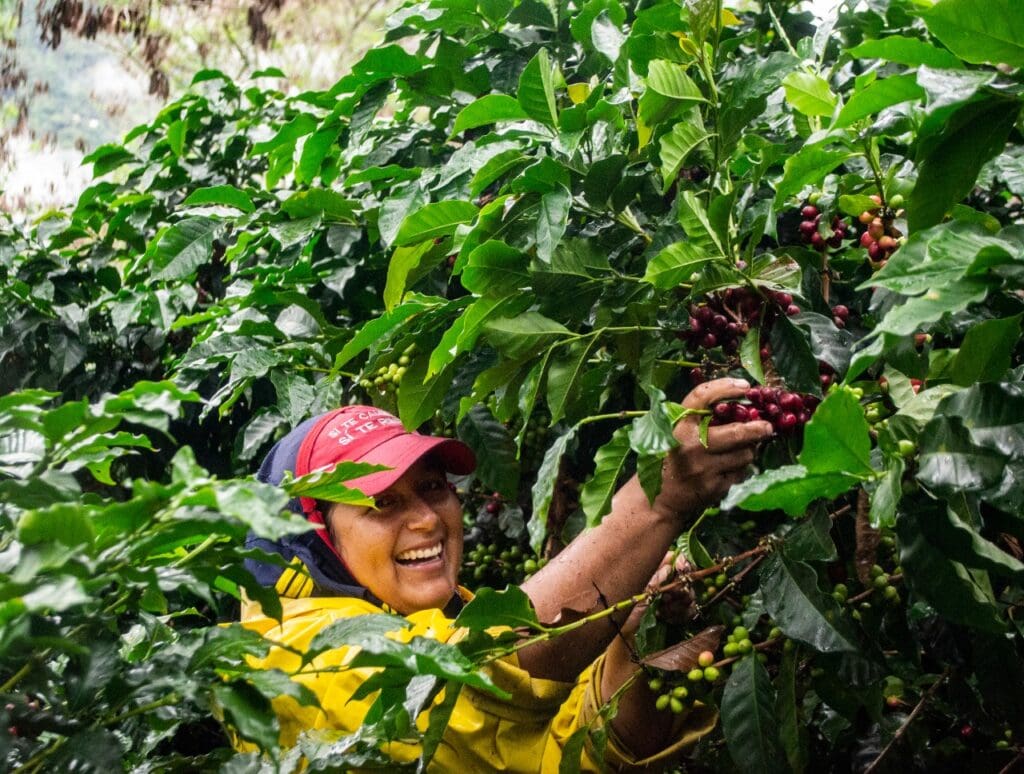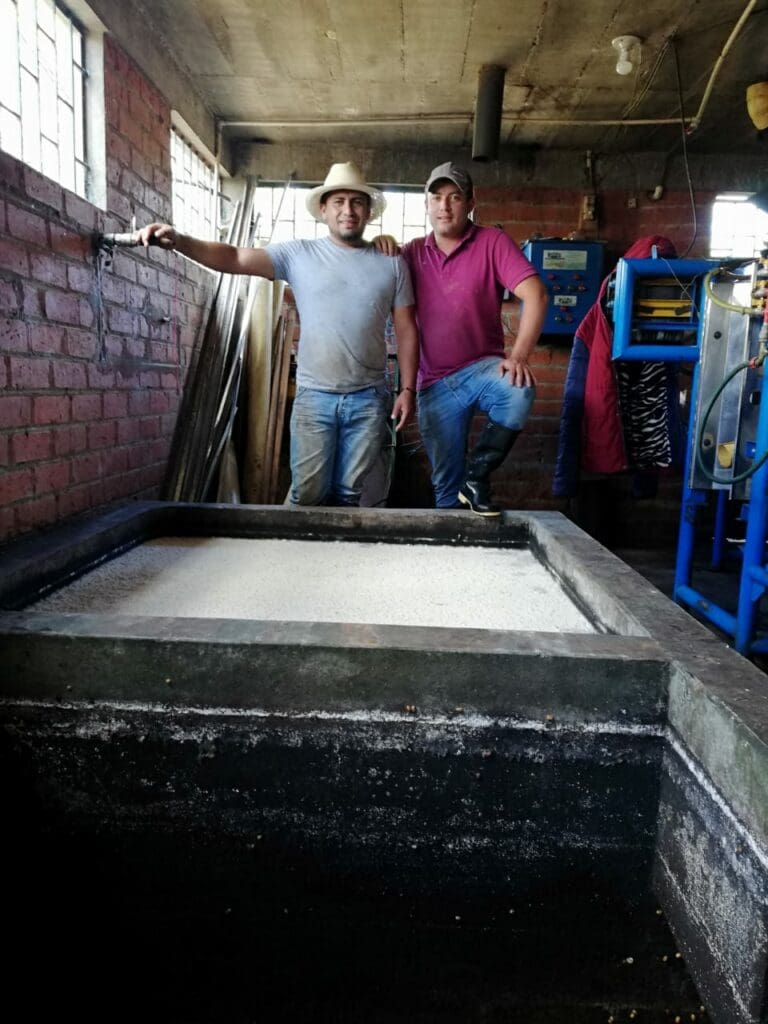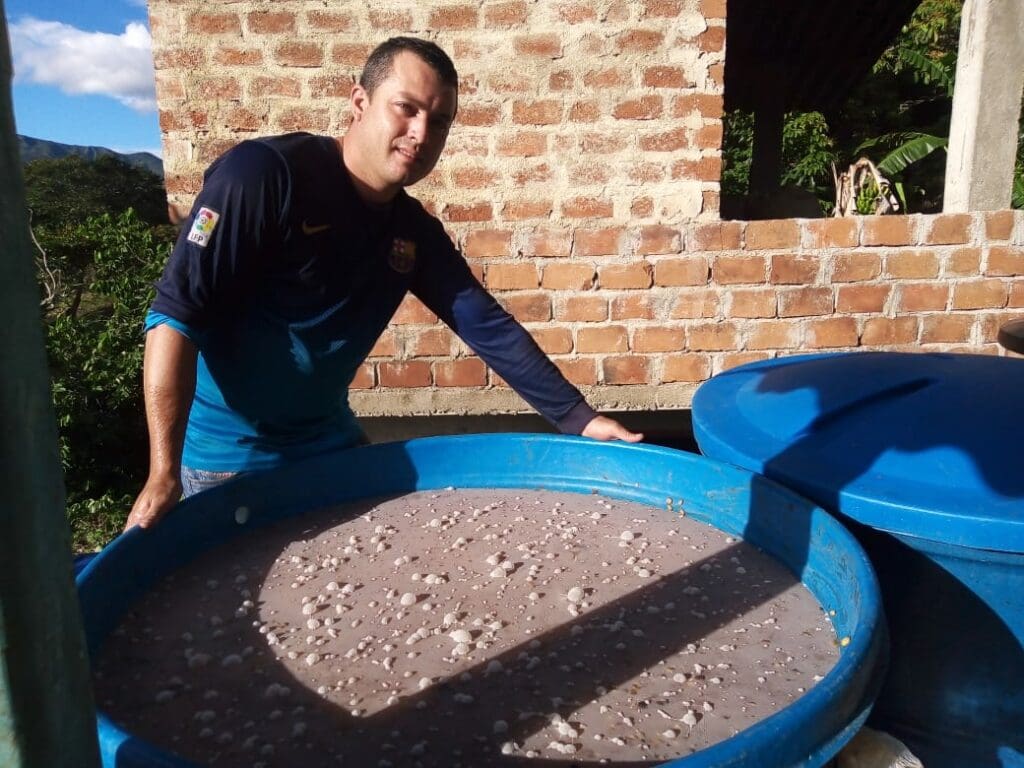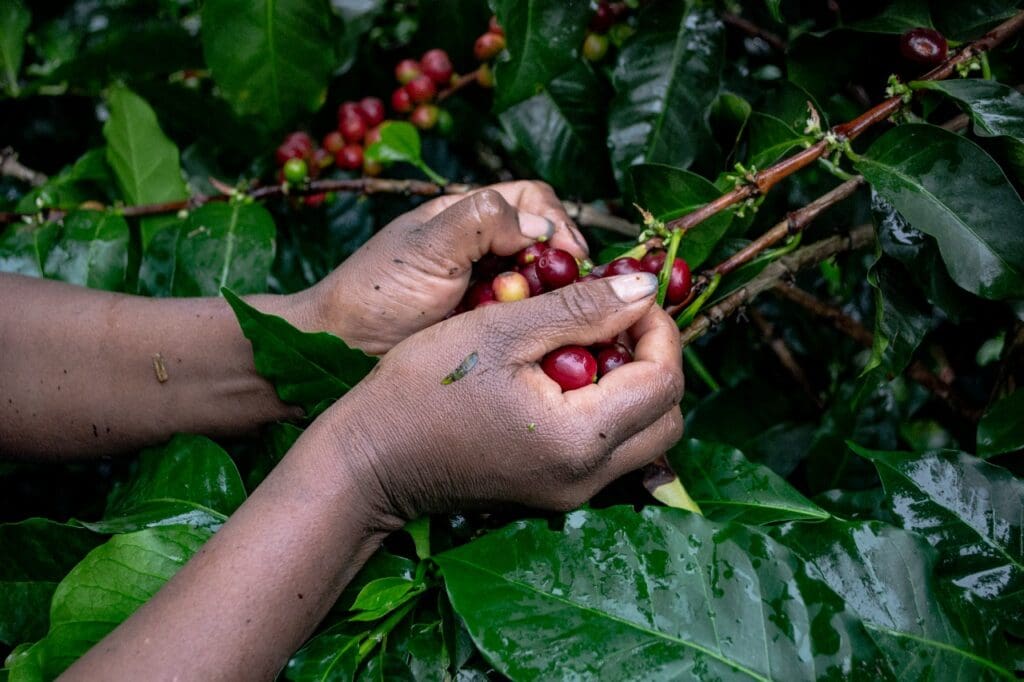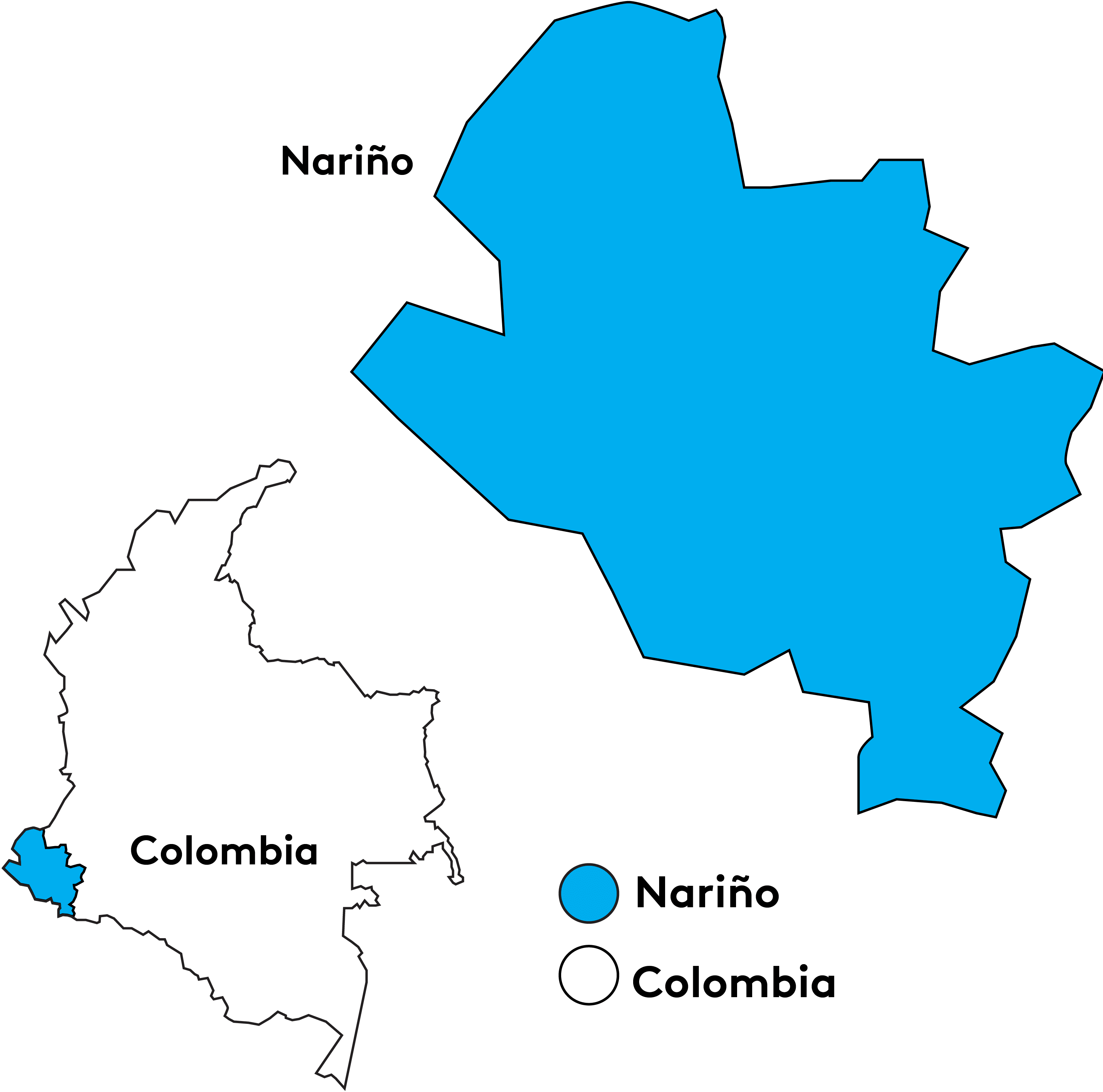Located in the Sumapaz village outside of the town of Buesaco, Nariño, Colombia, is Huber Castillo’s farm El Paseo. Huber is a second generation coffee producer with a background in agronomic engineering, as well as working for the Federación Nacional de Cafeteros de Colombia (FNC). Outside of his own farm, he dedicates a lot of his work to the betterment of quality in the production of specialty coffees, including having consulted other producers on processing methods and other agronomic practices.
El Paseo has 5 hectares of land planted with varieties like Colombia, Caturra, and Castillo. Though the climate conditions have changed for the farm since coffee was first planted there 8 years ago, Huber has worked to preserve the organic material and quality composition of the soil. This effort has created and maintained an area that remains conducive to good quality and productivity for the plants.
The work toward quality on the farm isn’t only restricted to the cultivation of the plants, but also extends through to the processing of the cherries. Huber has found success with intentionally controlled fermentation times and temperatures, for which he uses a heat exchange system in his fermentation tanks as well as temperature control in his drying racks.
The Washed process for this coffee begins with thorough washing of the cherries. Then, before being sealed into oxygen-free tanks, the cherries are measured for pH and degrees Brix to determine the amount of time they will be fermented. These tanks are fitted with a one-way valve, allowing CO2 and other gases to escape while still maintaining the anaerobic fermentation environment. After 60 hours of anaerobic fermentation the cherries are then pulped and moved to water-filled vats for a period of aerobic fermentation. At this point, specific bacteria cultures are added to produce lactic acid. The pulped coffee is fermented for another 60 hours before being fully washed. During this process the temperature of the fermentation environments never exceeds 15° C. Finally, the coffee is moved to be dried in the temperature controlled drying beds, which are kept below 38° C. Here, the coffee is dried for 22 days, at which point it reaches the target humidity and is moved into storage.
